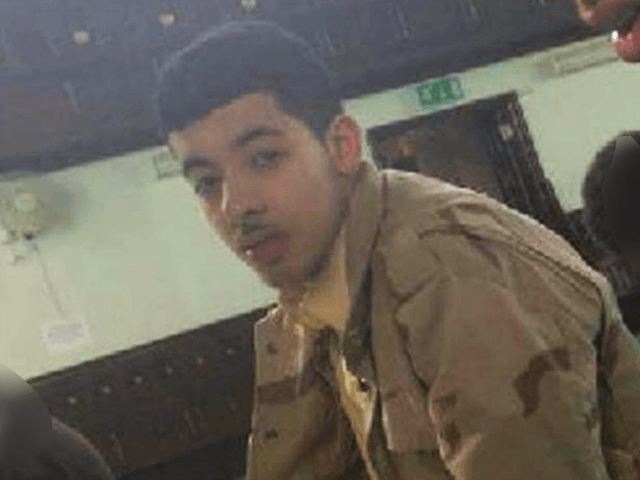MI5 has admitted that Salman Abedi should have been put on a “ports action list” to alert police of his return from Libya four days before he killed 22 people on May 22nd, 2017, at the Manchester Arena in an Islamist suicide bombing.
During a public inquiry into the terror attack, it was revealed that 22-year-old Abedi, the son of Libyan refugees, was in contact with eight people marked subjects of interest (SOIs) to MI5 — Britain’s domestic intelligence agency, also known as the Security Service — including five individuals suspected of having links with Islamic State in Syria, al-Qaeda, and an Islamist extremist group in Libya. One of the men was convicted terrorist Abdalraouf Abdallah, who had tried to help three Islamists travel to Syria to join ISIS, who Abedi had visited in prison.
MI5 had investigated Abedi himself as an SOI in 2014 and 2015 and he was linked to SOIs as early as 2013, when his phone number was connected to a man believed to be preparing to join ISIS in Syria. The inquiry also heard that MI5 had been alerted to Abedi on December 20th, 2010, the day before his 16th birthday, but claimed there was no evidence to suggest he was a security risk. MI5 was scheduled to discuss reopening Abedi’s case on May 31st — a week after the Libyan heritage terrorist committed his attack.
An MI5 officer speaking anonymously to the inquiry at Manchester Magistrates’ Court agreed that Abedi should have been put on a “ports action list” for police to intercept him on his return from Libya, according to The Times.
The MI5 witness, referred to as Witness J, admitted that some of the information was “highly relevant” but at the time the Security Service believed, wrongly, that it was a “reasonable judgement” to believe Abedi was not involved in terrorism.
“In our post-attack work we can see it was highly relevant. In our view it was a reasonable judgment that he was not associated with terrorism,” the witness insisted on Monday.
“Looking back, you can see it was intelligence that was highly relevant to the planned attack,” the officer admitted.
The inquiry had also heard that Abedi was linked to those associated with “a serious crime gang” in South Manchester, with Witness J going on to detail that there is a “close proximity between violent extremism and criminal gangs in Manchester”, per a 2010 report by the Joint Analysis and Terrorism Centre (JTAC), a part of the Security Service.
Witness J said the report also showed that Libyan-background suspects may have been exposed to those from their parents’ generation with ties to extremism in Libya, including the al-Qaeda-linked Libyan Islamic Fighting Group (LIFG).
The intelligence officer said that Ramadan Abedi, Salman Abedi’s father who returned to Libya in April 2017 after living in the United Kingdom as a refugee, was “likely” to have influenced his son’s radical Islamist views.
The BBC confirmed on Tuesday that Salman Abedi’s father Ramadan Abedi and his wife Samia Tabbal are living in Tripoli and are under surveillance by Libyan security services.
“We are watching the family, constantly. If anything happens we will know,” a Libyan security service source told the British broadcaster.
Neither parent has been charged with an offence in Britain, but another of their sons, Salman’s brother Hashem, was extradited from Libya in 2019 and convicted for his part in the attack and sentenced to 55 years in prison.
The eldest brother, Ismail Abedi, has reportedly fled the United Kingdom, avoiding an appearance at the inquiry.

COMMENTS
Please let us know if you're having issues with commenting.